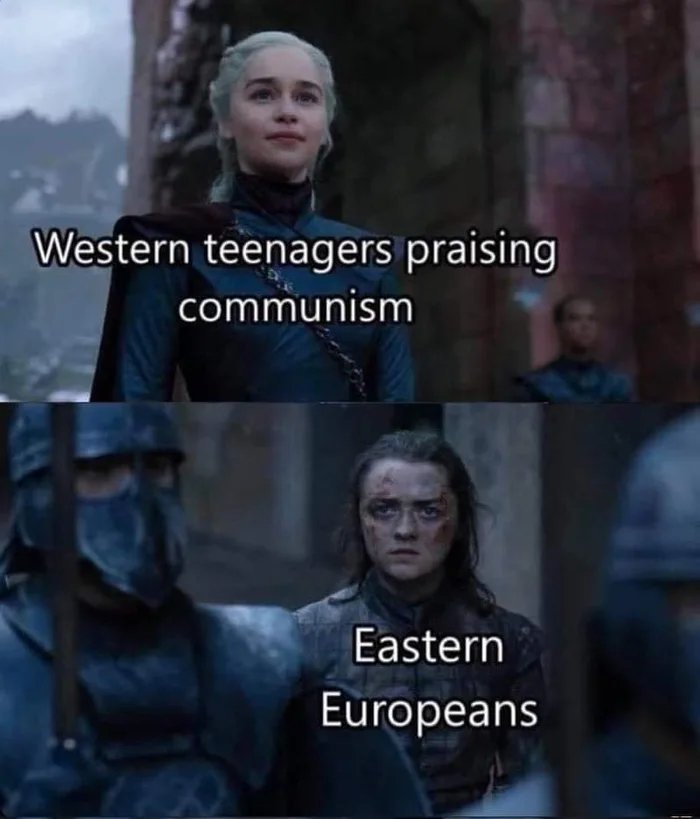this post was submitted on 22 Jul 2023
155 points (80.2% liked)
Memes
52845 readers
234 users here now
Rules:
- Be civil and nice.
- Try not to excessively repost, as a rule of thumb, wait at least 2 months to do it if you have to.
founded 6 years ago
MODERATORS
you are viewing a single comment's thread
view the rest of the comments
view the rest of the comments

How else would it work? You need some power structure that actively forbids a free market and private ownership. And that power will sooner or later be abused.
You can't just imagine some utopia where nobody has to work, and everything is free, and call that communism.
The core tenant of every form of Communism, regardless of if said party or organisation follows it, is as follows: that the means of production should belong to the workers who work them. If the means of production are not in the hands of the workers, then they are not communist. If they are in the hands of a CEO or a corporation, you have private capitalism or market capitalis like the US. If you put them in the hands of a state, they are in the state, you get state capitalism ala China or the USSR.
The power structure of the state protects an upper class, be it billionaires or "the party". If you abolish the state, but not capitalism, capitalism will rebuild the state (which is why Anarcho capitalism fails every time) and vice versa (which is what happens with Marxist Leninism).
For a Communist or communalist society to work it needs to be Anarchist or classically Libertarian (aka like Bakunin or Kropotkin proposed, not "money first"). It needs to have a horizontal and democratic decision making process that is decentralised, federated, and involves all the members of the community or communities effected. If there is to be a state, it should be to facilitate the colaboration of communities in a bottom up manner. These are the features of almost every single effective or successful Anarchist or Socialist movements from Rojava or the Zapatistas, as well as non-political movements like the Open Source Movement, railway preservatiion movement, and even the early RNLI.
The power structure thant would forbid a free market would be the collective weight of everyone else rather than a state that, sooner or later, becomes the jackboot of capital.
how would such an anarchist/liberal stateless communist organization defend itself from invasion?
So the first thing to consider is that anarchy is a very diverse field of thought, so there isn't one answer to questions about it.
An anarchist society faced with violence from outsiders could:
Remember that an attacker wants something. If they aren't getting what they want out of a conflict, or if the costs are greater than what is gained, they are likely to stop pursuing it. Anarchist communities likely have different values, and resource extraction is the most likely reason to attack such a community; making it extremely difficult or impossible to do that is something an organized community can achieve.
Think about Vietnam; while Vietnam was and is not anarchist or non-hierarchical, a decentralized military strategy with deep support from the population led to victory over a technologically superior invader. For an example closer to anarchy, you can read up on the Zapatistas, who employed decentralized resistance to the Mexican government and won.
Last, I want to add that the above is more or less true of any community or country that is attacked by a larger force, whether they are communist, or capitalist, or stateless. Economic and social structure are not going to protect any group from being attacked, and doesn't guarantee victory no matter how organized the defense may be.
The system you describe cannot exist. An anarchist or libertarian state in the real world can neither regulate nor defend itself from other states. It's a fantasy that would collapse immediately upon implementation in all possible real world circumstances.